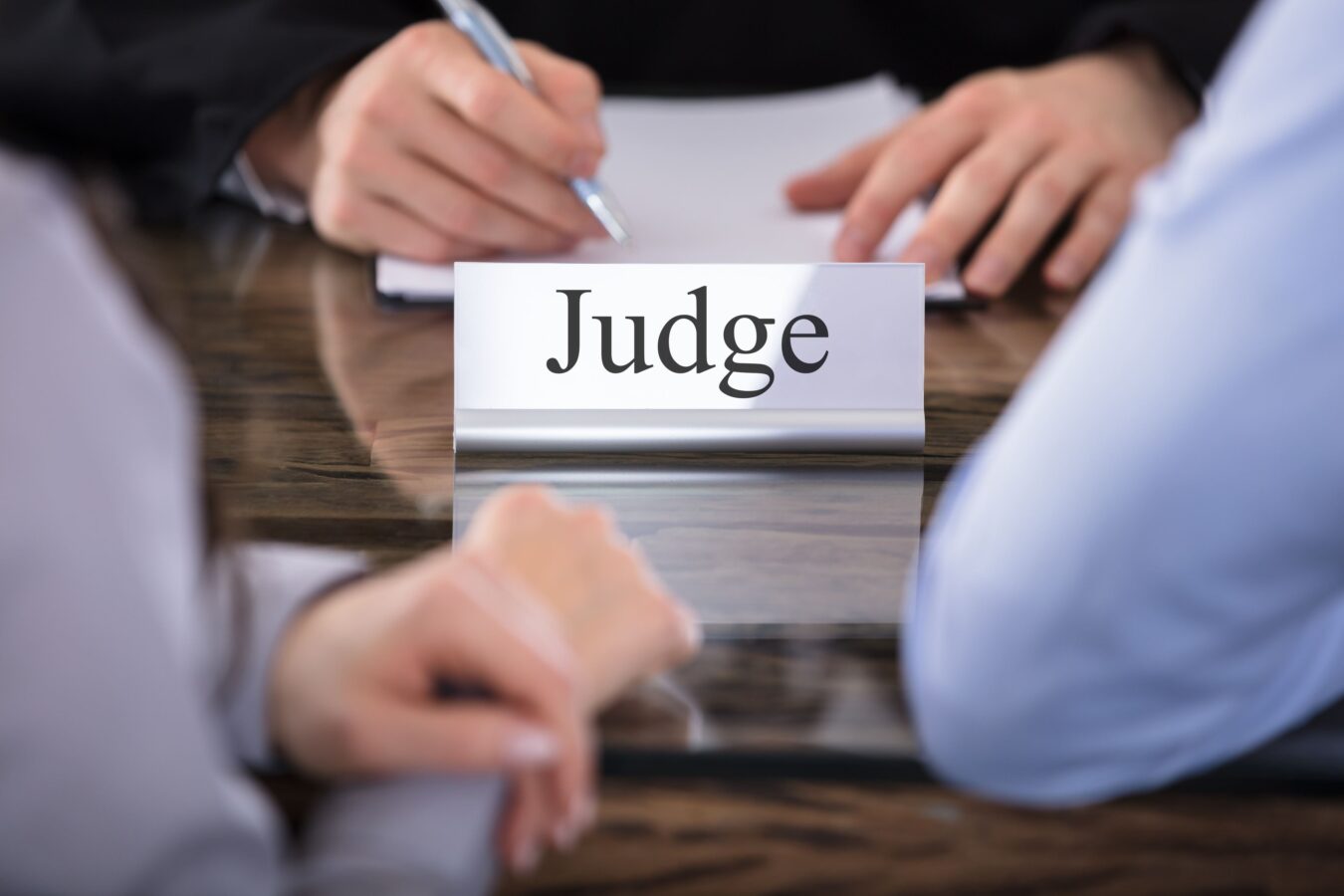How to Prove False Allegations in Family Court
How To Prove False Allegations In Court
Dealing with false accusations in family court can be an incredibly stressful and challenging situation. When one parent makes allegations against the other that are untrue, it can damage the reputation and relationship of the accused parent, while also negatively impacting child custody decisions. Proving that allegations are false requires thorough evidence gathering, legal preparation, and emotional resilience. Follow these tips to build your case against false accusations:
Understand the Accusations
The first step is to fully understand what you are being accused of. False allegations may involve:
- Abuse – physical, verbal, emotional, or sexual abuse against a spouse or child
- Neglect – failure to provide proper care and supervision of a child
- Substance abuse – excessive or dangerous use of drugs or alcohol
- Infidelity – cheating on a spouse
- Financial wrongdoing – hiding assets or inappropriate use of money
Knowing the specifics will allow you to collect evidence that directly contradicts the allegations.
How To Defend Yourself Against False Accusations
Steps To Take If You Are Falsely Accused
Being accused of a crime you didn’t commit can be an extremely distressing and life-altering experience. While it may seem unbelievable that someone would make serious false allegations against you, it unfortunately does happen. If you find yourself in this situation, there are several constructive steps you can take to prove your innocence.
Realize The Seriousness Of The Accusations
Even if you know without a doubt that you are innocent, do not underestimate how seriously false allegations can be taken. Law enforcement, prosecutors, judges and juries will not simply take an accused person’s word that they are innocent. You need to match the seriousness of the accusations with a serious commitment to taking appropriate action in your defense. Realizing this from the very start will increase your chances of achieving a positive outcome.
Understand The Cost Of Defense
Mounting a comprehensive legal defense to serious criminal accusations often comes with substantial financial costs. Attorney fees, expert witness fees, private investigator expenses and more can add up to an overwhelming, unexpected burden. However, these costs may later be reimbursed if your innocence is proven. More on this possibility later.
Intervene Before Charges
Retaining an experienced criminal defense lawyer even before any charges are filed can make a crucial difference. In some cases, an attorney may be able to intervene early and convince law enforcement and prosecutors that there is insufficient evidence to pursue charges against you due to the accuser’s lack of credibility or malicious intentions.
Take No Action
In certain circumstances, your attorney may advise taking no action for a period of time. If the available evidence against you seems lacking, the prosecution may ultimately decline to file charges due to lack of solid testimony, failure to obtain favorable forensic test results or other deficiencies in their case.
Obtain Witness Contact Information
Make a concerted effort early on to gather the names and contact information of anyone who may be able to provide useful information regarding the allegations against you, the supposed incident itself or the surrounding circumstances.
Investigation
Dedicate time upfront to thoroughly investigating the allegations and building your defense. Carefully examining witness statements, physical evidence, the prosecution’s legal arguments and more can reveal weaknesses in the case against you and allow your legal team to construct an effective defense.
Plea Bargain
Based on the findings of your independent investigation, your lawyer may advise considering a plea bargain arrangement even if you are actually innocent of the allegations. While this may seem unjust, in certain situations it could result in a less severe sentence and avoid the risk of a lengthy prison term if found guilty at trial.
Seek The Help Of A Criminal Defense Attorney
One of the smartest first steps if you are dealing with false criminal accusations is to promptly consult with an experienced local criminal defense lawyer. An adept attorney will have the knowledge to map out your optimal legal strategy. Most offer free initial consultations and maintain strict client confidentiality.
Gather Documentation
Collect as much documentation as possible to disprove the allegations. Useful evidence can include:
- Police reports and investigation records
- Child welfare reports
- Medical records
- Receipts and financial statements
- Journals and calendars chronicling your daily activities
- Emails, texts, and phone records
- Eyewitness statements and character testimony
Thorough documentation creates a paper trail that tells the real story.
Conduct A Pre-Trial Investigation
Your lawyer and their team should spearhead conducting a comprehensive independent pre-trial investigation. Thorough preliminary investigation prior to the filing of formal charges can potentially reveal favorable witnesses statements, exculpatory evidence or other revelations that may result in charges being dismissed or reduced.
Gather Evidence To Support Your Side Of The Story
Make every effort to systematically gather and preserve all documentation which could potentially cast doubt upon the allegations against you. Receipts proving you were miles away from the supposed crime scene at the time in question, video surveillance footage, photographic evidence, supportive witness statements or other substantiating evidence can all tremendously bolster your defense.
Obtain Evidence To Impeach The Accuser
Discrediting the overall believability of your accuser in the eyes of the judge and jury is another prime strategy. If you or your lawyer successfully obtain hard evidence that contradicts their version of events or reveals them to have a history of dishonesty, it will undermine their credibility as a witness.
Take A Private Polygraph Test
Polygraph examination results comprise another category of evidentiary support which may strengthen your case. While the results of private polygraph tests often remain confidential at the discretion of the defense, if you pass it can persuade prosecutors to drop or reduce charges prior to trial. Your lawyer can contextualize the legal nuances of utilizing polygraph test results.
What You Shouldn’t Do When Someone Makes False Accusations Against You
When under the intense stress of false allegations, it is easy to panic and make rash decisions that end up seriously harming your case. Here are some key missteps to avoid if someone falsely accuses you of a crime:
Destroy Any Evidence
Never attempt to destroy or conceal any physical evidence pertinent to the case under any circumstances, even if you believe the items reflect poorly on you. Tampering with or destroying criminal evidence is itself a felony offense which will result in additional charges regardless of the veracity of the initial accusations.
Contact The Victim Or Witnesses
It is absolutely vital not to reach out to your accuser directly in any way, whether by phone, email, text message, social media, or in person. Any communication with them could spawn further allegations or charges of harassment, witness tampering or intimidation. Avoid contact with any potential witnesses as well without guidance from counsel.
Talk To The Police, Prosecutor, Or Criminal Investigator Without Your Attorney
Never voluntarily offer statements to law enforcement without your criminal defense lawyer present. Even innocent remarks could be misconstrued and used against you in the courtroom. Politely decline to answer any substantive questions and unambiguously invoke your right to remain silent.
Consent To A DNA Test Or Other Tests Requested Without Your Attorney Present
Similarly, do not comply with any requests from police or prosecutors to consent to DNA swabs, drug/alcohol tests or other forensic examinations without first consulting your lawyer. The results could be misrepresented or falsely attributed to you, so your attorney needs the opportunity to object to inadequately obtained tests.
Filing A Civil Suit For Malicious Prosecution
Finally, after you successfully demonstrate your innocence in court, you may wish to consider filing a subsequent standalone civil lawsuit for malicious prosecution against your accuser. This allows you to pursue financial compensation for all monetary damages incurred due to false allegations. Reimbursable expenses may include:
- All legal fees from defending against bogus charges
- Loss of wages from work time missed while in jail or in court
- Costs stemming from psychological therapy or medical treatment
- Permanent damage to personal or professional reputation
While monetary rewards cannot make up for the severe emotional trauma and disruption caused by false accusations, they enable you to recover major out-of-pocket costs. Consult with a civil litigation attorney to determine if you have grounds for a malicious prosecution claim after criminal charges against you are dismissed.
Anticipate Testimony
Prepare for what the accuser and other witnesses might say during the hearings. Your attorney can issue subpoenas for depositions and interviews ahead of time. Analyze testimony for inconsistencies, bias, hearsay, and falsehoods. Develop incisive cross-examination questions that will cast doubt on the witness’ credibility.
Assemble a Support System
Surround yourself with people who know your true character and will stand by your side. Close friends, other family members, neighbors, coworkers, and community members can all provide statements vouching for your innocence. Their perspective reinforces that the accusations do not line up with the person you truly are.
Remain Calm During Proceedings
Behave respectfully and professionally in court, no matter how emotional the situation becomes. Outbursts or aggressive behavior from you will only hurt your case. Expressions of raw frustration or anger can be used to paint you in a negative light. Keep composure and let your evidence speak for itself.
Highlight Inconsistencies
Use the proceedings as an opportunity to poke holes in the accuser’s allegations. Question why details were initially left out but added later, or why the story has changed over time. Point out contradictions in timelines and testimony. Doggedly pursue logical fallacies and lack of common sense. Don’t let manipulation tactics go unanswered.
Emphasize Patterns of Falsehoods
Build an argument around the accuser’s broader pattern of untruths, exaggerations, or misleading statements, if one exists. Show the court this is part of an ongoing behavior pattern that is not simply a misunderstanding. Someone prone to frequent lies and drama should not be seen as credible.
Consider Using Expert Witnesses
In some situations, expert witness testimony can greatly bolster your case. Child psychologists, domestic violence specialists, addiction counselors, forensic accountants, and other professionals can provide authoritative opinions that the allegations simply do not match the evidence. This can carry more weight than testimony from friends and family.
Remain Hopeful But Realistic
False allegations can be challenging to disprove, especially when a skilled accuser seems highly convincing. Understand that you may not fully clear your name even with robust evidence and testimony. But you can put enough doubt in the court’s mind to mitigate the worst outcomes. With dedication and resilience, the truth tends to prevail in the end.
Why Do People Make False Allegations?
Those who find themselves wrongly accused of crimes often grapple with understanding what would motivate someone to make such damaging false statements. Defense lawyers who regularly handle these cases note a variety of underlying root causes, including:
- Bitterness during heated divorce and child custody battles
- Misguided efforts to gain leverage as a victim or witness in unrelated legal cases
- Underlying personality disorders
- Misinterpretation of innocent behaviors or communications
- Misinformed assumptions based on appearance or lifestyle factors
- General anger, jealousy or desire for revenge against the accused
Regardless of the reasons false allegations arise, following the guidance in this article will equip you to decisively take action to defend your innocence and reputation. Lean on experienced legal counsel, thoughtfully build your case and remain patient through difficult circumstances. Ultimately the facts and evidence will prevail.
Conclusion
False allegations during divorce and child custody cases can derail your life if you do not take them seriously and build an airtight rebuttal. While the justice system aims to protect victims, accusations are not always truthful. By understanding the allegations fully, hiring a skilled attorney, collecting extensive documentation, anticipating the opposing side’s testimony, rallying supporters, controlling your own behavior, highlighting inconsistencies, establishing a pattern of lies, and utilizing experts, you can demonstrate the allegations lack merit. While the road will not be easy, ultimately the facts are on your side. Stay focused on disproving misinformation with integrity, and you will emerge from the storm.
FAQs
What Is The Definition Of False Allegations?
False Allegations Are Accusations That Are Made Against Someone Without Any Basis In Fact.
What Are The Types Of False Allegations?
The Types Of False Allegations Include Sexual Assault, Domestic Violence, Child Abuse, Fraud, And Defamation.
What Is The First Step In Proving False Allegations In Court?
The First Step Is To Hire A Competent Attorney.
What Is The Importance Of Gathering Evidence?
Gathering Evidence Is Essential In Proving False Allegations As It Helps To Support Your Case.
Can False Allegations Be Unintentional?
Yes, False Allegations Can Be Made Unintentionally. False Allegations Can Be Made Due To Misunderstandings, Miscommunications, Or Faulty Memories. It Is Important To Carefully Review The Evidence And Consider All Possible Explanations Before Determining Whether An Allegation Is False.
How Long Does It Take To Prove False Allegations In Court?
The Length Of Time It Takes To Prove False Allegations In Court Can Vary Depending On The Complexity Of The Case, The Amount Of Evidence, And Other Factors. It Is Important To Be Patient And Work Closely With Your Attorney Throughout The Process.
Q: What should I do if I suspect my ex is planning to make false allegations?
A: Consult your attorney immediately if you suspect false allegations may arise. Begin gathering supporting evidence and lining up witnesses. Consider filing for protective orders restricting what accusations can be made. Preemptively raising concerns with the court could put your ex on notice and prevent the ambush.
Q: How can I regain my reputation after being falsely accused?
A: Start rebuilding by candidly discussing with family and friends that you were falsely accused and providing the facts that disprove it. Avoid needless blame or anger. In the community, spotlight your volunteering and good works. Eventually the spotlight will shift away from the accusations as your actions consistently show your good character over time.
Q: What if my child has been manipulated into making false allegations against me?
A: Work with your attorney and a child psychologist to evaluate whether parental alienation or coercion is occurring. False allegations arising from programming a child to lie are a form of abuse. With counseling, the child’s right to an honest relationship with both parents can be restored.
Q: Could public social media posts be used against me as evidence?
A: Yes, online posts on social media can potentially be used against you, even if taken out of context. Be thoughtful and disciplined with what you share publicly online during this difficult time. Venting frustration online could undermine your case, as could insensitive photos, comments, and interactions.
Q: Is secretly recording conversations legal to prove I’m innocent?
A: Laws around secret recordings vary by state. It may be illegal and inadmissible as evidence. Discuss with your attorney beforehand. Even where legal, ethical concerns exist. Communicate openly rather than recording others without consent. Honest interaction provides the best defence.
Q: If I am contacted by police asking questions about a crime I’m accused of, should I answer them?
A: No, you should politely decline to answer any substantive questions and tell them you wish to speak to an attorney first. Answering questions without guidance puts you at risk of inadvertent self-incrimination.
Q: Can falsely accused people recover money to pay their legal fees and other expenses?
A: Yes, the falsely accused generally have strong grounds to pursue financial compensation by filing a civil lawsuit for malicious prosecution after being exonerated of bogus criminal charges.
Q: Is it illegal to destroy potential evidence if I think it might be used to falsely accuse me?
A: Yes, destroying or tampering with any objects relevant to a criminal investigation constitutes the additional felony offense of evidence tampering, even if you are innocent and fear the items could implicate you falsely.
Q: If a polygraph test shows I’m telling the truth about false allegations, can that instantly clear my name?
A: While polygraph results can be persuasive evidence of innocence, they are generally not definitive or legally binding proof on their own that will automatically exonerate the accused or force dismissal of charges.
Q: If someone close to me falsely accuses me of harming them, should I reach out to ask why?
A: No, you should never directly contact in any way a person who has made false allegations against you. This often leads to additional charges like harassment or witness intimidation. Move forward solely through your attorney.






